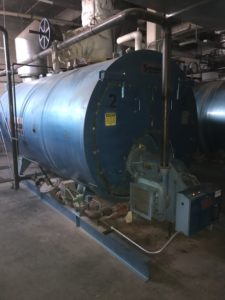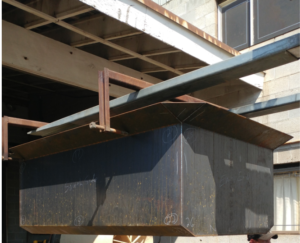Managing the dangerous waste your business generates is critical to pollution prevention. EPA’s hazardous waste regulations, and Washington State’s dangerous waste regulations provide procedures to safely manage hazardous waste. Spring Environmental provides assistance developing and complying with waste management regulations.
Designation and Disposal
Generators are required to characterize waste streams using knowledge of the process and analytical data. Spring Environmental performs waste characterization and provides guidance on handling and disposal.
Project Examples:
- Sonderen Packaging, Inc., a manufacturer of paperboard cartons in Spokane, Washington, produces and manages various waste streams. Each new waste stream must be identified and characterized for proper management and disposal. Spring Environmental characterized four waste streams at the facility, including process and materials evaluation, sample plans and collection, laboratory result analysis, and recommendations for disposal in accordance with Washington State and Federal guidelines.

- Fairchild Air Force Base in Airway Heights, Washington manages an eclectic variety of waste streams from the various operations occurring on base. Spring Environmental characterized known and unknown wastes collected at the facility, including process and materials evaluation, preparation of sample analysis plans, sample collection, laboratory result analysis, and recommendations for disposal in accordance with Washington State and Federal guidelines.
Engineering
Generators are required to store solid waste in a manner that protects the environment. Spring Environmental assists with design and integrity testing of storage tanks to ensure safe storage.
Project Examples:
 Goodrich Corporation operates a brake manufacturing facility in the west plains area of Spokane, WA. The facility is a large quantity generator of hazardous and dangerous waste. Spring Environmental performed visual inspections and an engineering assessment of the used oil system to verify that it had the structural integrity and was appropriate for the storage of dangerous waste in accordance with Chapter 173-303 of the Washington Administrative Code, Section 640 “Tank Systems”. In addition, Spring Environmental coordinated a tank integrity examination with a certified tank inspector on each of four tanks in the system.
Goodrich Corporation operates a brake manufacturing facility in the west plains area of Spokane, WA. The facility is a large quantity generator of hazardous and dangerous waste. Spring Environmental performed visual inspections and an engineering assessment of the used oil system to verify that it had the structural integrity and was appropriate for the storage of dangerous waste in accordance with Chapter 173-303 of the Washington Administrative Code, Section 640 “Tank Systems”. In addition, Spring Environmental coordinated a tank integrity examination with a certified tank inspector on each of four tanks in the system. Multi Manufacturing, Inc. operates a zinc plating facility in Yakima, Washington. The facility is a large quantity generator of federal and state regulated hazardous waste. A system of tanks and associated equipment is used to store and treat the hazardous waste. As part of a system upgrade, a tank was replaced with a newly fabricated tank. Spring Environmental performed an engineering assessment and coordinated a certified structural tank integrity examination on the new tank to verify that it was appropriate for storage of dangerous waste in accordance with Chapter 173-303 of the Washington Administrative Code, Section 640 “Tank Systems.”
Multi Manufacturing, Inc. operates a zinc plating facility in Yakima, Washington. The facility is a large quantity generator of federal and state regulated hazardous waste. A system of tanks and associated equipment is used to store and treat the hazardous waste. As part of a system upgrade, a tank was replaced with a newly fabricated tank. Spring Environmental performed an engineering assessment and coordinated a certified structural tank integrity examination on the new tank to verify that it was appropriate for storage of dangerous waste in accordance with Chapter 173-303 of the Washington Administrative Code, Section 640 “Tank Systems.”- Stimson Lumber Company operates a lumber mill in Priest River Idaho, which required structural integrity verification on an evaporation tank. Spring Environmental coordinated a certified structural tank integrity examination on the new tank to verify that it was appropriate for storage purposes.
Waste Management Plans
In accordance with 40 CFR 262 and WAC 173-303, generators are required to identify, classify, manage, and dispose of solid waste in a manner that protects the environment and planning for appropriate waste management is key to success. These plans may incorporate waste designation, storage areas, employee training, and emergency response.
Project Examples:
- U.S. Wax is a custom turnkey filling and private labeling house, producing some of the world’s finest cleaning and polishing compounds, waxes and polishes for automotive, motorcycle, marine and aviation applications. U.S. Wax became a Large Quantity Generator of hazardous waste in 2007. Spring Environmental developed a Waste Management Plan to identify and ensure proper management of all waste streams generated by the facility.
- Triumph Group designs, engineers, manufactures, repairs and overhauls a broad portfolio of composite aircraft structures, components, accessories, subassemblies and systems in Airway Heights, WA. Spring Environmental updated their Waste Management Plan to streamline the document for greater employee comprehension and to ensure identification of all waste streams generated by the facility.
Reporting
All generators have requirements for maintaining records, including training records, hazardous waste manifests, LDRs, waste counting, waste profiles, inspections, exception reports, and annual/biennial hazardous waste reports. At times the amount of paperwork and recordkeeping can be confusing, overwhelming, or frustrating. Spring Environmental works with businesses to streamline their recordkeeping systems, ensure reproducibility and accessibility of records, and to prepare comprehensive compliance documents.
Project Examples:
- Fiber-Tech manufactures composite panels & fiberglass reinforced panels for all markets & applications at their facility located in Spokane, WA and is a large quantity generator. Spring Environmental assisted with environmental and safety compliance in all media, including preparing and submitting the annual Washington State TurboWaste reports, Tier II reports, and Pollution Prevention Plan updates.
- Ponderary Newsprint Company, located in Usk, Washington, produces newsprint for leading publishers along the West Coast and U.S. Midwest. The facility is a small quantity generator but works diligently to maintain compliance below WA-MQG thresholds. Spring Environmental assisted with environmental and safety compliance in all media, including preparing and submitting the annual reports via the Washington State TurboWaste reporting system.
- U.S. Wax is a custom turnkey filling and private labeling house located in Spokane, WA. The facility is a large quantity generator which treats waste by evaporation and stores waste in containers and storage tanks. Spring Environmental developed a management system to provide ease of reporting for their annual hazardous waste report and to ensure quick accessibility of records for annual regulatory inspections. Furthermore, Spring Environmental has prepared annual Washington State TurboWaste reporting system.
